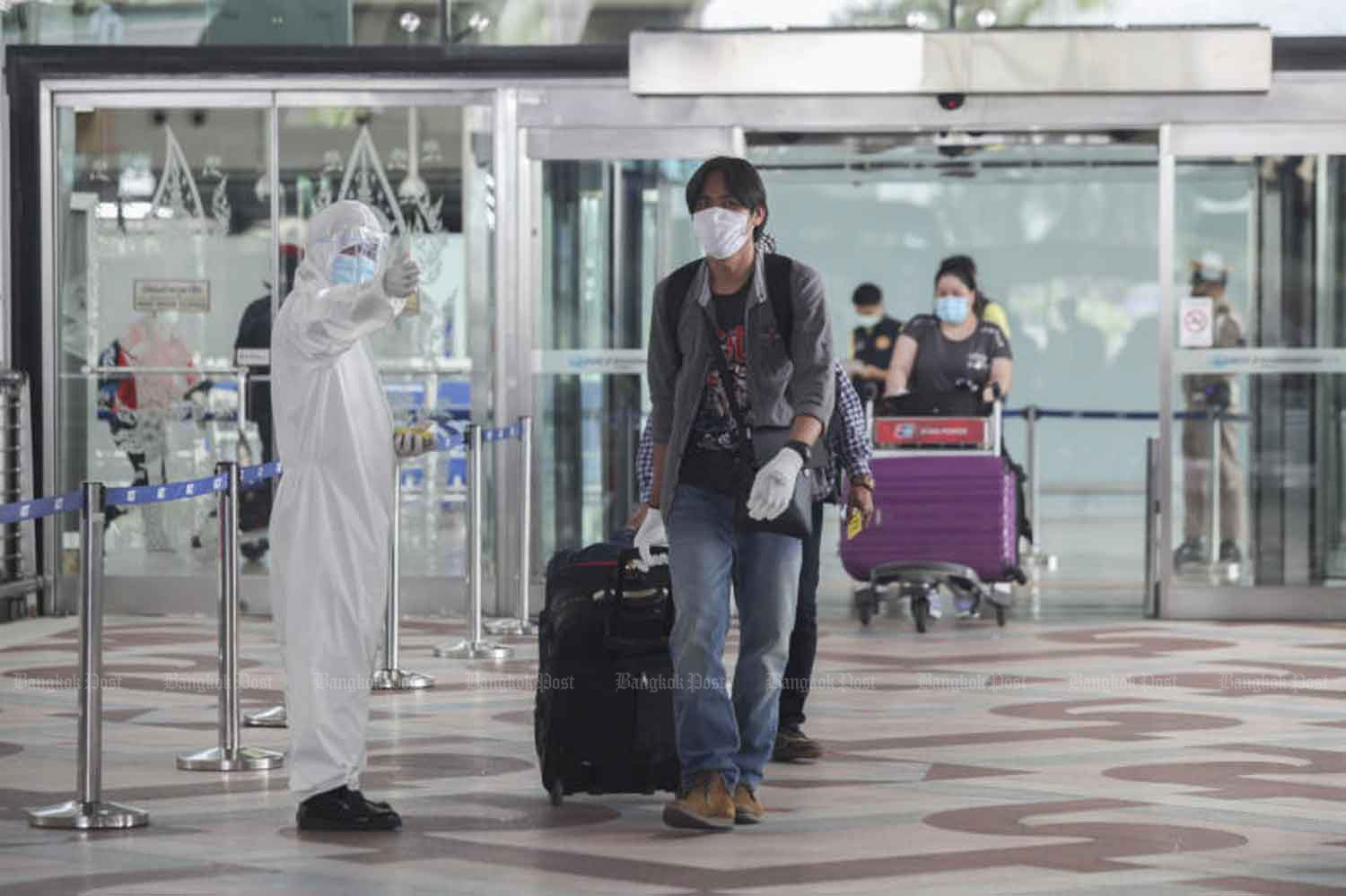
The government has temporarily banned the entry of foreign diplomats and special business representatives after the young daughter of the Sudanese attache was found to be infected with the coronavirus after the family arrived from Khartoum.
Taweesilp Visanuyothin, spokesman of the Centre for Covid-19 Situation Administration, on Tuesday announced the suspension of arrivals by privileged foreigners and business reps under special arrangements, and foreign diplomats and their families.
He said it would remain in force while the CCSA plugged loopholes in its disease control measures.
Privileged visitors are people the prime minister or an emergency state supervisor invited to the country. Business reps under special arrangements plan on only short stays. Both categories have been allowed in since July 1.
Dr Taweesilp said that in future arriving foreign diplomatic staff and their families would have to stay for 14 days at "alternative state quarantine" facilities that the government would arrange. It would be dangerous for them to stay at embassies, he said.
The CCSA decision was a response to the case of the 9-year-old daughter of the Sudanese attache in Bangkok, he said.
The girl's mother took their family of five for health checks in Sudan on July 7, and they were given clearance to travel.
They left Sudan that day and arrived in Thailand at 5.40am on July 10. They reached their residence at One X condominium in Sukhumvit area at 9.25am. The same flight also carried 245 Thai returnees.
Upon arrival, the family was asymptomatic but samples were taken for Covid-19 tests. It was known later that morning that the girl was infected.
Her father took her to a hospital in Bangkok, where a second test confirmed the first result.
On July 11 the girl was diagnosed with pneumonia and was referred to Queen Sirikit National Institute of Child Health in Bangkok on Juy12. The same day, her family moved into the Sudanese embassy on Soi Suan Phlu.
The family had been staying on the 19th floor of the One X condominium building, which has 329 rooms of which 200 were occupied.
About 70% of the residents were foreigners and about 50% of them wore face masks while using elevators there, Dr Taweesilp said.
Seven people were deemed at high risk of infection - the girl's parents and younger sister, a limousine chauffeur, two airport van drivers and a Sudanese embassy official.
Fifteen other people who used the same elevator the family used were deemed at low risk of infection, he said. The family and drivers would be tested on Wednesday.